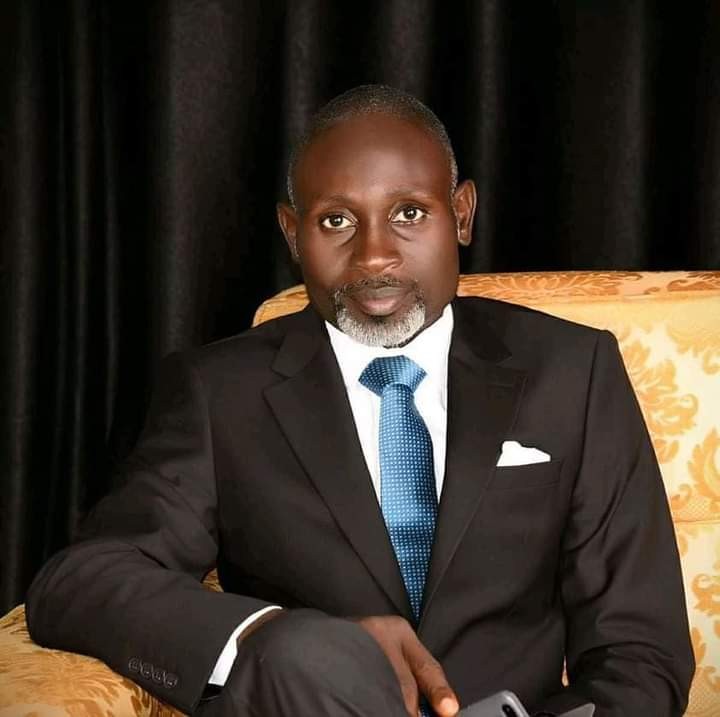The Culture Of Peace: Experts Advocates Tourism Development As Panacea For Conflicts
- 5 Янв, 2024
- 2227 просмотров
Africa's adherence to a culture of Peace is committed to Non-violence which is a fundamental Core Value in our daily coexistence. It is an absolute commitment to non-violence and non-violent conflict resolution that has kept the continent bound with less display of warring tendencies.
The violence of physical harm or abuse to anyone is not acceptable in a peaceful and just society as Africans have always portrayed lately.
We grew up as a United community, with everyone being a keeper of each other and conflicts resolved peacefully without physical violence or threats. Using guns or any weapons to harm others or resolve conflicts was never acceptable and not an option we ever opted for. But sadly, things changed, and a once healthy environment became a war zone due to the influx of social and developmental elements. What was supposed to make us better suddenly made us bitter, and at who?- ourselves.
We need to understand that In a Culture of Peace, individuals and groups will need to peacefully tolerate opposing beliefs, opinions, and arguments of others. That you are right where you stand doesn't mean that others are wrong where they stand. It all depends on your perspectives.
A Culture of Peace does not mean that everyone will always agree or always be in harmony but disagreements, disharmonies, and arguments will need to be tolerated.
Africans have to come to the realization that conflicts need to be tolerated and accepted as inevitable in any human society, but these conflicts should be discussed and resolved peacefully, without violence or imposed suppression.
A Culture of Peace does not mean that no one will occasionally feel emotionally hurt or have their sensitivities upset. Individuals or groups might hurt the feelings and sensitivities of others, because different people or groups hold different beliefs and sensitivities, or they might express behaviors that others are not comfortable with, but even that can be peacefully addressed.
In addition, people may have different beliefs of what exactly is right and wrong, good and bad, justice and injustice. Everyone might not precisely agree on certain questions of morality, justice or fairness. So inevitably, even in a Culture of Peace, there may be outspoken arguments and heated controversial discussions about social or political issues but our cultural value should come to our rescue in ensuring that such disagreementd do not lead to harmful resolutions.
We should revert to our old ways where free speech, free discussion and open debate will be peacefully tolerated without any censorship or punishment imposed by one group upon another group because of differences in beliefs or opinions.
We all need to remember and accept that there are diverse and different sub-cultures within the larger Culture of Peace. So there will need to be an accepted tolerance of different beliefs and life-choices, including an accepted tolerance of various out-spoken beliefs and opinions, even if these are opposing our own beliefs and opinions, or even if these might be upsetting to some people's sensitivity or feelings. Thus, a Culture of Peace will still need to acceptably tolerate various social conflicts and social sensitivities, as long as there is no physical violence involved.
Recently in the city of Port Harcourt, Rivers State, Nigeria, International Peace Day was marked. As part of the activities marking the International Peace Day, the University of Port Harcourt's centre for Peace and security studies held a lecture with the theme: Actions for Peace: Our Ambition For The Global Goals,’.
While delivering his welcome address, the vice Chancellor of the esteemed institution, Prof Owunari Georgewill, called for more investment in tourism as the remedy to conflicts in the Niger Delta region.
Owuneri, underscored the importance of peace in every sphere of life noting its ability to promote the values of empathy, compassion, and cooperation. He said that tourism, when nurtured responsibly, can be a powerful catalyst for positive change, adding that it fosters cultural exchange, mutual understanding, and economic growth and allows people to showcase the beauty of the people and the region to the global world.
Also, the Keynote Speaker, Prof. Isaac Olawale, noted that although there is relative peace, it is unfortunate that the number of war zones has increased dramatically.
Chairman of the event, Dr Iti Orugbani, who is the Commissioner of Culture and Tourism Development in Bayelsa State, charged participants with the urgent need for individual and collective responsibility to foster peace.
He was represented by the Director of the ministry, Dr. John Suofe, and noted that fostering peace contributes to the realisation of sustainable development goals while achieving it will create a culture of peace.
Eze Prof. Sam Ugo Onyeka in his lectures PROUDLY AN AFRICAN, once noted that Africans lost it when we became hasty to condemn the culture and traditions of Africans and became more interested in the culture of others peculiar to their own race. We woefully failed to understand this difference.
In his words " The whole world is rebooting itself, and Patience, doing it right and consistency should be our watchword in building our cultural values and regaining our cultural trust. We shall soon realize how much we have gained being back to our roots", he concluded.
- Категория:
- Искусство и культура
- Организация:
- Clevenard.com
- писатель:
- Franca Idemudia
- Телефон:
- 08060353790
- Еще нет комментариев



